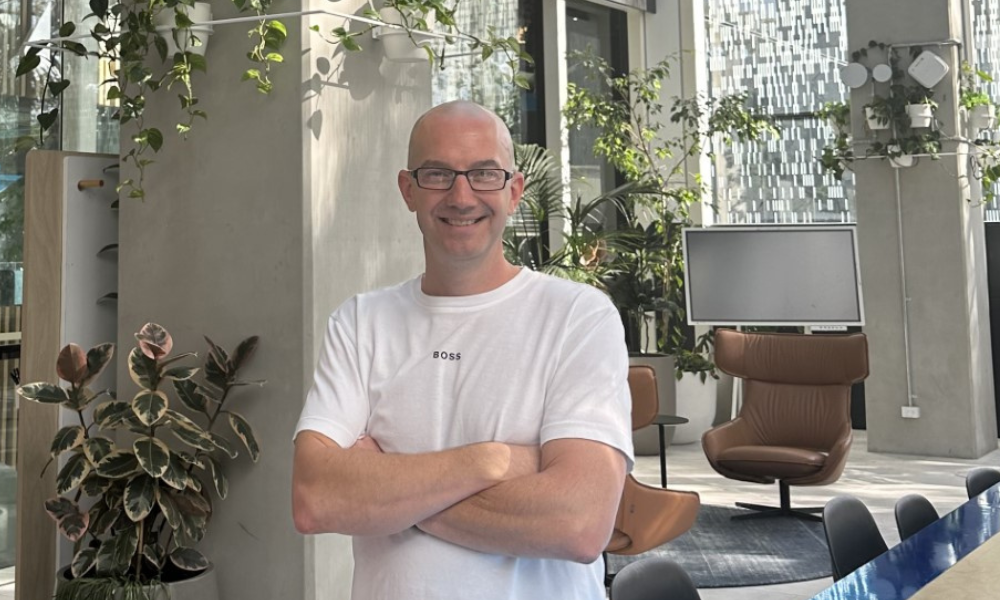
2Degrees' Head of People Operations Ryan Ghisi on HR initiatives that include benchmarking, AI, employee engagement

When Ryan Ghisi, Head of People Operations at 2Degrees, first joined the company in 2023, one of his key priorities was to create a cohesive remuneration and reward framework. At the time, 2Degrees and Vocus NZ had just completed a merger, becoming the third largest telecommunications company in the country.
“We had two companies that had not long merged,” Ghisi told HRD New Zealand. “We had two different policies; we had to combine those policies and [decide] what the foundations of that remuneration and reward policy should be: What are the principles? How does it align to our strategy and our culture?
“So a lot of work was done in going and engaging the business, understanding what we already had in place and what we needed to support the business going forward.”
The company used global market data provider Radford, which is owned by Aon, during this process, Ghisi said.
“Fast forward six months and we've gone through this process of sizing and benchmarking all of our roles,” he said. “We now have this approach that we apply that allows managers to position employees within a range for each of those roles, and a really strong foundation for when we run our salary reviews and when we look at reevaluating our organisation, our structure, our teams.”
It has been foundational in career development and career growth, he added.
Ghisi, who was named one of HRD’s Best HR Executives in New Zealand, was also involved in creating a more efficient process for effectively engaging with employees. This was through the use of the Service Now tool, which the company uses for case management. Employees can submit their questions through the portal and have their issues resolved.
“We're able to manage, assign, track, resolve, and do a whole bunch of analysis in all those cases so we can understand ‘What are the common themes that are coming through?’ ‘How can we feed information into our intranet to update and create new FAQs?’” Ghisi said. “Ultimately what we want is for employees to be able to self-serve and find information themselves before they even raise a case.”
In addition, 2Degrees is also trialling an AI sourcing tool, he said.
“A big part of that is bringing on more diverse talent,” he said. “This AI sourcing tool that we're using, it's called QJumpers, scrapes across multiple sources online – based on parameters that we've entered – and starts pipelining talent for us. It’s a proactive way of helping us to achieve some of those diversity and gender pay targets that we're working on.”
One of the key trends Ghisi highlighted that HR teams need to keep on top of is employee engagement.
“I've always framed it up as ‘You told us, we listened, here's what we're doing’,” he said. “Not only is it important to ask people and seek feedback – the cadence has changed. It should no longer be an annual engagement survey. We need to be constantly pulse-checking with employees: ‘How are we doing?’
“We need to take that feedback and those scores, look at them and use them to validate what we're working on. Because if we're working on things that aren't aligned to what's important to people or where we need to improve, then we need to stop and reprioritise.”
As for AI, HR’s key role in not only the awareness of how it could benefit an organisation but the guardrails a company has around its use, Ghisi said.
“We're not the ones who are determining the strategy in terms of the technology, the tools and the application,” he said. “But we are strictly pivotal to the communication of our approach to AI. What are the skills and capabilities that we need and how we grow in those? And what are the forums for employees to share their experiences of using AI and how it's benefited them?
“And myth busting – this isn't about mass redundancies, AI isn't here to take your jobs, it's a co-pilot.”
During his time in the HR industry, Ghisi, has seen a shift from it being personnel management to becoming more commercial and strategic.
“Obviously, the operational components will always be there,” he said. “But I think having that commercial and strategic acumen is really important. We call them business partners now; they're business partners in the truest sense. They are sitting in with our leadership teams, truly understanding the challenges they have, understanding the strategic priorities and understanding what we need to do more of or less of to support and enable them.”
And for those newly entering the HR industry, Ghisi emphasised the importance of listening.
“If you have that passion – and everyone will know from their own experience, even if they're younger and haven't been in the workforce long – they'll know what they've enjoyed about a work environment in terms of the culture, the values, their manager’s style and approach, their leadership and how transparent and authentic they are,” he said.
“There are those things that you would have experienced yourself as an employee that you value, that, in the people team, you have a huge part in influencing, curating and supporting leadership to create that culture and develop those values.”
Ghisi added that it can be very easy to “keep your blinkers on” throughout your career and instead highlighted the need to create a network.
“It's so important to build a network of your peers and to be regularly getting outside of your environment and what you're doing to understand what others are doing,” he said.
“Often, they have the same challenges or they've had the same challenges and you can learn from them, they can learn from you. It's just a great way to help shape your thinking and have a better understanding of what's happening in the wider market.”